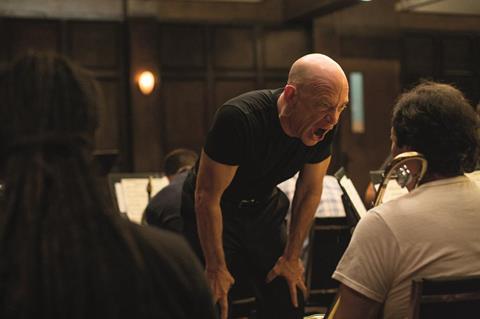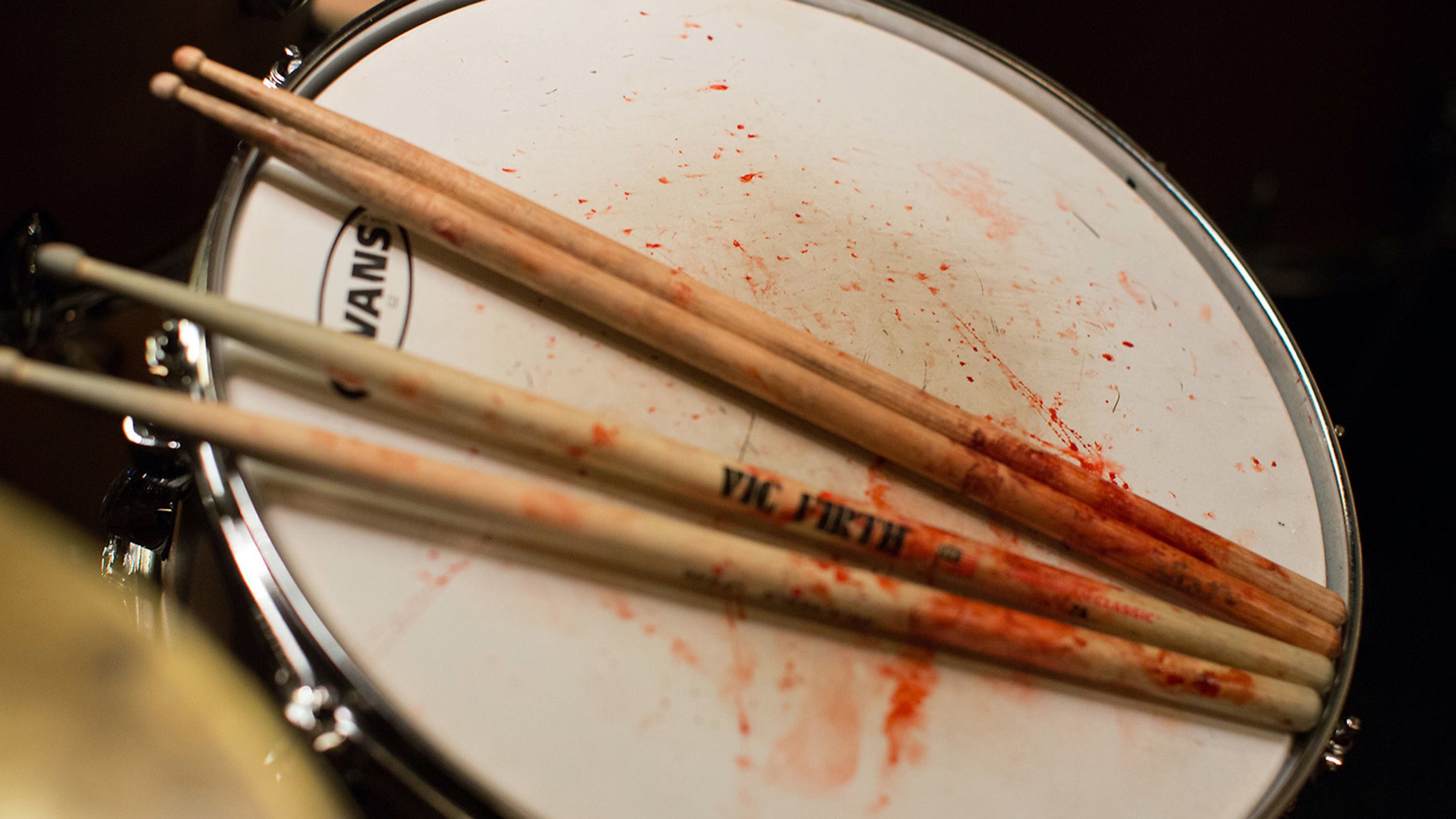Whiplash – Passion Blog 10
Whiplash (2014) written and directed by Damien Chazelle, is an story of transformation through abuse and passion. When watching the film, the audience is left with a question of morality in the pursuit of greatness. Starring Miles Teller as thee main protagonist, Andrew Niemann, and an absolutely phenomenal performance by J.K. Simmons as abusive director Terence Fletcher, this movie is able to engross the audience like very few others.
If you haven’t seen the movie already, I highly recommend you do. I recently watched it for the first time myself, and it has already shot up to one of my favorite movies of all time.
Also, SPOILER WARNING!

The story opens with the main character, Andrew Niemann, up late at night hard at work playing the drums. It’s clear he has a passion for what he plays. Poster across the wall depict famous jazz drummer Buddy Rich, showing his clear drive to strive towards something great. In walks Terence Fletcher, and it’s clear by Andrew’s reaction that Fletcher is someone important, and someone he wants to impress. Fletcher already begins to show the manipulative and abusive tendencies he symbolizes as he speaks to Fletcher. As a former musician myself, many others may relate to the context of a dramatic and abusive teacher.

The story eventually progresses to a point where Andrew has begun to play for Fletchers elite group of musicians. At first, Andrew is scared and discouraged by the talent around him, as well as the intensity exuded by Fletcher. Before playing, Fletcher speaks with Andrew privately, unbeknownst to the audience until afterword, Fletcher is secretly probing for information to truly hurt Niemann emotionally. All is well until they begin to get farther into their practice.
(Warning, extremely strong language and abuse)
https://youtu.be/xDAsABdkWSc
To the viewer, this is clearly a toxic and abusive relationship between student and teacher, but that isn’t completely clear to Andrew at the time. Through the course of the movie, we learn that Fletcher’s whole motivation is to create the next greatest musician, and to Fletcher, the only way to do that is by ruthlessly tearing down the person within, and building them back up with nothing left but the motivation, drive, and goal in mind to be the greatest.

During Whiplash, it’s clear that Andrew is susceptible to this form of motivation. He’s been caught by Fletcher’s abuse and is acting the exact way that Fletcher wants him to. Andrew’s passion and motivation envelopes him, and he becomes obsessed with the idea of greatness. Multiple times through the movie he plays so hard to the point where his hands bleed, but he keeps playing. He nearly dies in a car crash, but he walks to the competition stage on foot to play. He’s lost his former self, a mere husk of what he used to be, completely taken over by this obsession. In the end, Andrew becomes exactly what Fletcher wants him to be. He becomes great, one of the best, putting on the performance of a lifetime after years of humiliation and abuse. By this point, both Andrew and Fletcher have gotten what they wanted, but is it truly a happy ending? Is the abuse and pure destruction of this man worth the great the greatness that comes from it? Whiplash is a story that questions whether the ends justify the means, and it leaves audiences questioning the same thing.